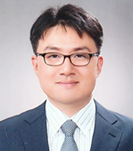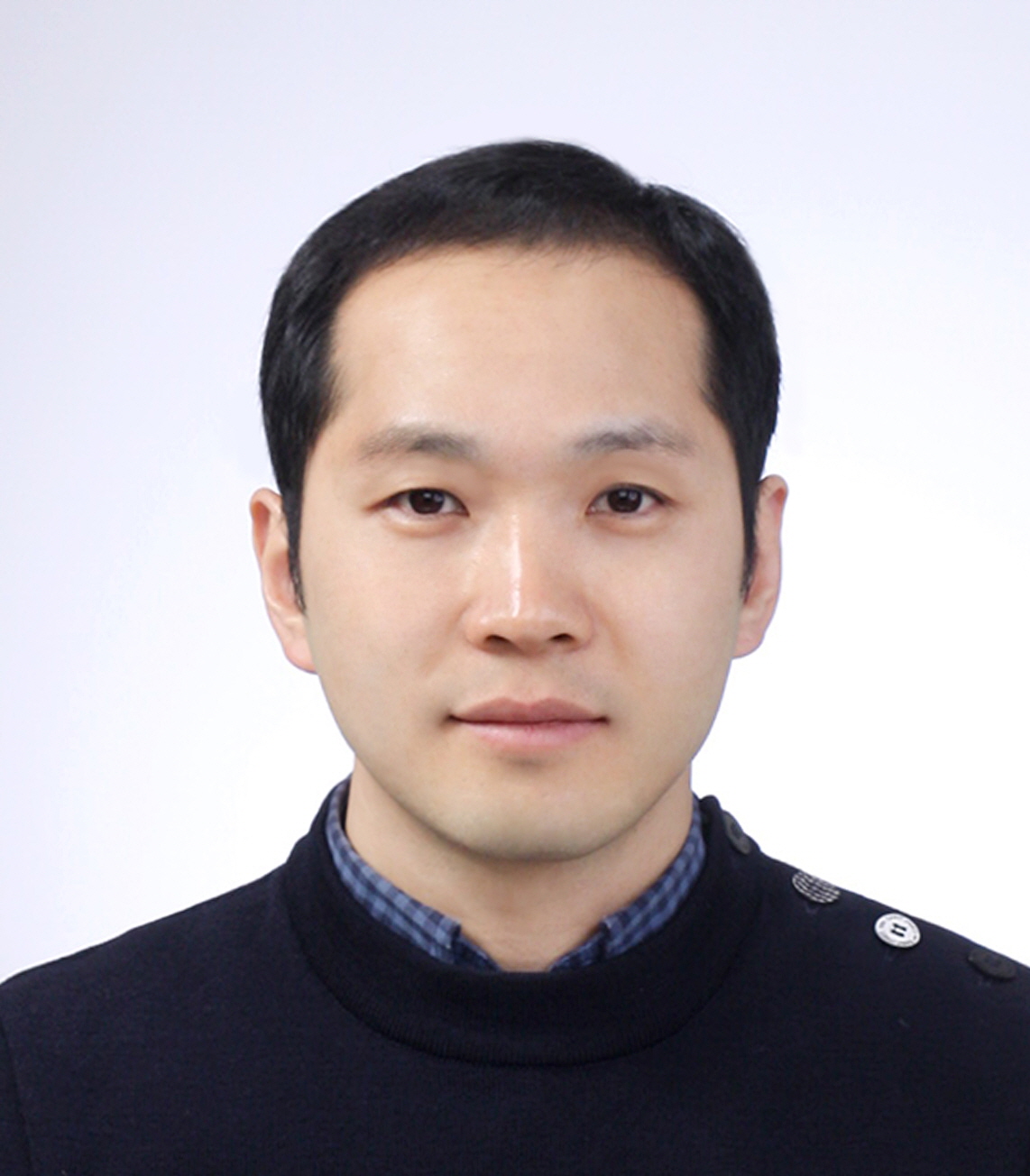Faculty in the department are currently interested in research that includes organic, inorganic, physical, and materials chemistry; nanoscience; computational chemistry, as well as such diverse application areas as optics, electronics, sensors, and energy-related devices/systems.
-
Polymer Interfacial Engineering Laboratory.
We are interested in interfacial behaviors of polymer in various systems, including polymeric thin film, nanoparticles and networks. Chemical reaction kinetics, transport phenomena, or phase transitions can be estimated and characterized by controlling interfacial properties. Also, we are focusing on creating functional interfaces by adjusting intermolecular interactions at given environments.These interfacial polymeric systems can be applied into diverse research fields such asfunctional surfaces(anti-bacterial & anti-fouling), biomedical engineering materials,bioelectronic sensors, stimuli-responsive surfaces. Furthermore, engineered interfaces of nanoparticles will adjust the physicochemical properties in drug delivery or nucleic acid delivery systems.
-
Nanocarbon Lab
We are working on nanostructural design of carbon materials depending on applications. Our research interests include: (a) synthesis, ultra-high purification and dispersion of fibrous carbon materials, (b) study of the optical properties of carbon nanotubes, (c) designing carbon surface via the controlled edges and (iv) applications of carbon materials in polymer composites and energy storage systems.
-
Functional Organic Materials Synthesis Lab
We are working at the interface of organic chemistry, polymer synthesis, and materials science. We design and synthesize functional organic materials for sustainable applications. -Design and synthesis of functional polymeric materials -Investigating chemical mechanism for autonomous system -Sustainable polymers: recycling, biobased plastics, greener use, healthcare
-
Functional Polymer System Lab
We are developing new materials (electrode particles for pattern formation, stretchable electrodes) and pattern formation processes for molecular arrangement through the synthesis of functional polymer nanomaterials. In addition, we are also conducting research on the application of materials for wearable devices (pressure sensors, electronic skin, triboelectric energy generator and storage devices) and stretchable electronics using nanofiber-based fibrous materials and biodegradable resins to innovate the form factor of existing devices.
-
Integrated Electronic Materials Lab
The goal of our research group covers the study of polymer materials and process engineering for optoelectronic application like OLED/ QLED displays, organic photovoltaics and stretchable electrodes. In addition, we are interested in the electrical sensor devices based on polymers, which can measure the exact concentration of bio-molecules. For the practical approach, we are investigating the device integration from basic material design to the working system.
-
Functional Nanomaterials Lab
Our research group is interested in the rational design, synthesis, characterization, and applications of functional nanomaterials. Specifically, we are conducting leading-edge research in the areas of conducting polymer nanomaterials, carbon nanomaterials, nanocomposites, catalysts, sensors, and electrode materials.
-
Polymer Composites and Processing Lab
Our lab mainly focuses on designing smart and novel composite materials with high-functionality. For this, we aims at developing stimuli-responsive composite materials and understanding their rheological behaviors upon the stimuli. We are also interested in fabricating microfluidic devices, electrically, thermally, and biocompatility enhanced composite materials for structural, biomedical, and optical applications. Numerical simulations of conventional injection molding process and analytical modeling of micromechanics are also our interest.
-
Energy and Electronics Materials Lab
The Chang Research Group explores electronic, optical, mechanical and electrochemical properties of organic materials and organic-inorganic hybrid systems. We are particularly interested in fundamental and applied studies that relate molecular ordering and micro- through macroscopic structure to the solid-state properties of the materials. It is our ultimate goal to tune the materials' solid-state properties via morphology control for novel applications in electronics, energy, environment, biology and medicine.
-
Energy Materials Lab
Our lab focuses on designing and synthesizing functional materials for energy-efficient applications. Functional polymers and porous materials can be prepared with functional groups to achieve high thermal stability, high physical properties, and high energy efficiency. In particular, our research aims to maximize energy efficiency by tuning the structure of energy materials to modify the properties of diffusion and adsorption. Additionally, we focus on maximizing the energy efficiency of organic-inorganic composite materials through selective combinations of functional polymers and porous materials and interfacial engineering.
-
Theory and Simulations for Soft Matters Lab
Our group is interested in developing mesoscale simulation models and computational tools that allow us to investigate molecular assemblies, shape transitions, and derived physical properties in various soft matter systems, including but not limited to polymer melts, liquid crystalline polymers, networked polymers, amphiphilic polymers, polymer brushes etc.
-
PM(Polymeric Materials/Polymeric Membranes) Lab
Our current research focuses on the application and synthesis of polymeric membrane including biopolymers, such as poly(L-glutamic acid), gelatin and chitosan, especially on the permselectivity control through the structural change, i.e. random coil to helix conformation, of the biopolymer chains in a membrane. We have also studied the morphology control and the solute permeability of nanoscaled membranes with various multicomponent polymer system












